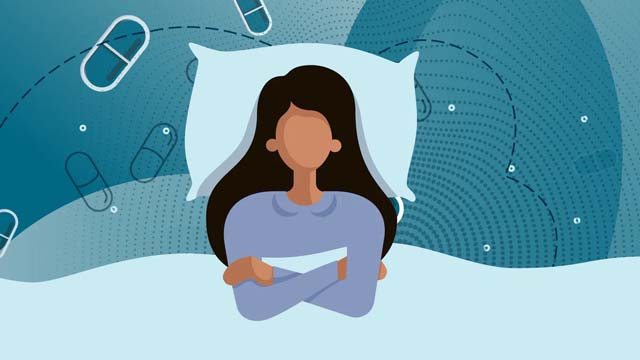Consistently sleeping less than five hours a night could increase the risk of developing depressive symptoms, according to a new genetic study led by researchers at UCL (University College London).
Poor sleep has historically been considered a side effect of mental illness, but this study found that the link between sleep and mental illness is more complex.
The study, published in the journal Translational Psychiatry , analyzed data from people with an average age of 65 and found that short sleep was associated with the onset of depressive symptoms.
Lead author Odessa S. Hamilton (UCL Institute of Epidemiology and Healthcare) said: “We have this chicken-or-egg scenario between suboptimal sleep duration and depression, which occur frequently, but which comes first is up to us. largely unresolved. Using genetic susceptibility to disease, we determined that sleep likely precedes depressive symptoms, and not the other way around.”
For the study, researchers used genetic and health data from 7,146 people recruited by the English Longitudinal Study of Aging (ELSA), a nationally representative population-based study in England.
They found that people with a greater genetic predisposition to short sleep (less than five hours in a given night) were more likely to develop depressive symptoms over 4 to 12 years, but that people with a greater genetic predisposition to depression did not have a greater genetic predisposition to short sleep (less than five hours on a given night). probability of sleeping little.
Lead author Dr Olesya Ajnakina (UCL Institute of Epidemiology and Healthcare and Institute of Psychiatry, Psychology and Neuroscience, King’s College London) said: "Short and long sleep durations, along with depression, important contributors to the public health burden that are highly heritable Polygenic scores, indices of an individual’s genetic propensity for a trait, are thought to be key to beginning to understand the nature of sleep duration and symptoms depressives".
The researchers assessed the strength of genetic predisposition among ELSA participants using findings from previous genome-wide association studies that have identified thousands of genetic variants linked to a higher likelihood of developing depression and short or long sleep.
As part of a series of separate analyzes to investigate the robustness of their results, the research team also looked at non-genetic associations between depressive symptoms and sleep duration.
They found that people who slept five hours or less were 2.5 times more likely to develop depressive symptoms, while people with depressive symptoms were a third more likely to suffer from sleep deprivation. They adjusted for a rich selection of factors that could affect the results, such as education, wealth, smoking, physical activity and limiting long-term illnesses.
The researchers also found a link between sleeping too much and developing depressive symptoms: Participants who slept more than nine hours were 1.5 times more likely to develop depressive symptoms than those who slept an average of seven hours. However, depressive symptoms were not associated with longer sleep four to 12 years later, which corresponded to the genetic findings.
Professor Andrew Steptoe (Head of Behavioral and Health Sciences, UCL Institute of Epidemiology and Healthcare) said: "Suboptimal sleep and depression increase with age, and with the global phenomenon of population ageing, there is a growing need to better understand the mechanism connecting depression." and lack of sleep. “This study lays an important foundation for future research into the intersection of genetics, sleep, and depressive symptoms.”
Overall, study participants slept an average of seven hours per night. More than 10% slept less than five hours per night at the beginning of the study period, increasing to more than 15% by the end of the study period, and the proportion of participants classified as having depressive symptoms increased by ~3 percentage points. from 8.75 to 11.47%.
Both sleep duration and depression are partly inherited from one generation to the next. Previous twin studies have suggested that depression is about 35% heritable and that genetic differences account for 40% of the variation in sleep duration.
In the study, data on sleep and depressive symptoms were combined from two ELSA surveys conducted two years apart, since sleep duration and depression are known to fluctuate over time.
















